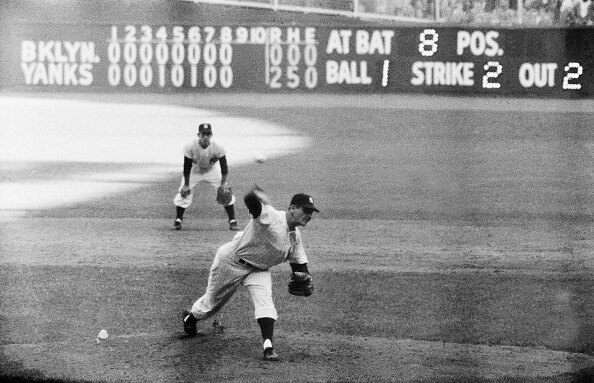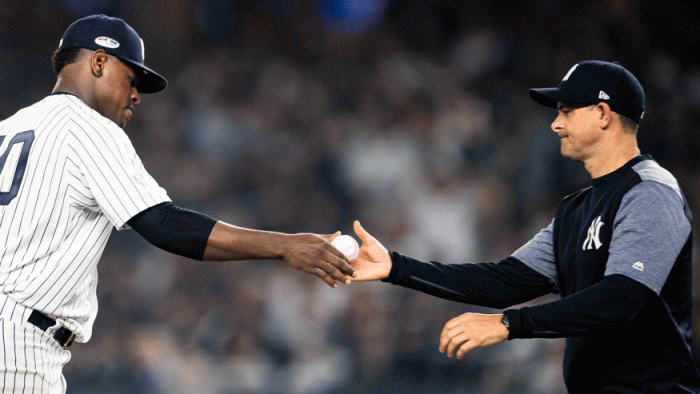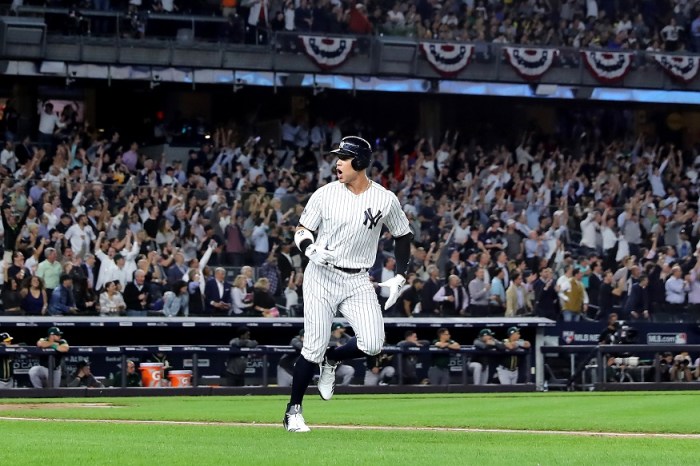The NFL is still far and away the most popular pro sports league in North America, based on TV ratings. The NBA is the most popular American sports league among millennials, according to a 2015 Washington Post piece.
Major League Baseball, meanwhile, cannot sniff the TV ratings of the NFL, and even loses out to the NBA in national TV ratings when comparing the 2017 NBA Finals and 2017 World Series. The general narrative among the key demos in America today is that baseball is “old,” “boring,” “slow,” and that it desperately needs some sort of turbo boost in order to save itself from losing out on an entire generation of fans.
NYU professor of politics and American Game Theorist Steven Brams is one of many who believes the way to entice younger audiences to embrace baseball is through rule changes, though Brams’ ideas are some of the more radical to have been heard.
“Baseball is falling far behind football and basketball, and most of it is due to fans losing interest during long games and blowouts,” Brams told Metro while discussing his paper on the topic that was published in the current issue of SIAM Review (produced by Society for Industrial and Applied Mathematics). “Making games more competitive and making games quicker should be the first priority for [MLB] right now.”
Time crunch
Despite recent efforts to speed up the game, the average time of a nine-inning game last season in MLB actually climbed four and a half minutes from the year prior. An average baseball game in 2017 was three hours, five minutes and 11 seconds – a new MLB record. When you factor in that each baseball team plays 162 games, that’s quite the commitment if you’re a fan of any one of these teams. In fact, if a fan was to watch every single pitch of his favorite team’s regular season games in 2017, he or she would have needed 20.8 full days (or 29,970 minutes) to complete the mission.
In a world where you’re lucky to get a Millennials’ attention for three minutes, let alone three hours – it’s clear that baseball needs to do something.
Brams’ most radical idea is to have regular season games “handicapped” with a so-called, “catch-up rule.” His proposed changes would include making teams that are ahead in score retire after two outs at bat instead of three. If a team goes ahead during an inning, and already has two outs, it would have to retire immediately.
“You wouldn’t see nearly as many blowouts with this rule,” Brams told Metro. “This is about modifying the game so that the team behind always has a chance to catch up, but it will also lead to changes in strategy.”
No sport in North America is so in love with its own traditions as baseball, so a proposed change this drastic would be met with furor from the baseball community. A giant issue baseball fans would have here is that the rule could diminish the truly great teams in the sport and could water it down as a whole. The best teams – which typically build leads early in a game for a reason – would be essentially punished for being good at their craft.
“Yes, the great teams would not like this but it encourages more competition. It’s a trade-off,” Brams told Metro. “Fans become uninterested very quickly during a blowout, particularly in baseball. We’ve studied the times of baseball games for the past 50 years and we think using the ‘Catch-up rule’ would cut games down by 20 minutes at least and would get it much closer to the NFL and NBA – which are the two most popular sports by far in America.”
Pain delay
Relatively new MLB commissioner Rob Manfred has pushed to tinker with the game’s rules to speed things up, but to no avail thus far. The MLBPA (Major League Baseball Players’ Association) has stalled Manfred’s attempt to introduce a pitch clock and a proposal that would have put a runner on second base to start the 10th inning of spring training games fell through last week.



















